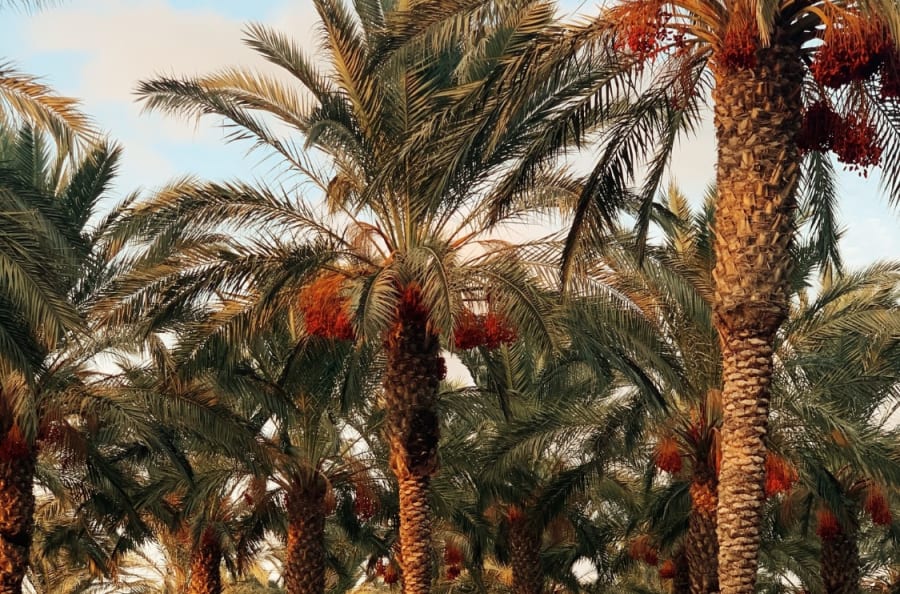Israeli technology boosts agriculture in Azerbaijan, Egypt, Saudi Arabia, the UAE and Morocco
Israelis companies increase cooperation to help find advanced solutions to global challenges

Israel will be helping Azerbaijan increase its wheat production, according to recent reports.
Just over a month ago, Israel struck a deal to sell its agricultural technology to the predominantly Muslim country. The deal will help Azerbaijan increase its wheat export in light of the current global wheat shortage caused by Russia’s invasion of Ukraine in February. In return, Israel plans to begin buying its wheat from Azerbaijan in 2025.
Ukraine is one of the largest suppliers of wheat in the world, but since the Ukraine-Russia conflict began, wheat prices around the world have shot up roughly 50% due to a shortage caused by the current situation.
The partnership between Israel and Azerbaijan is not solely based on agriculture, but extends into the realm of high-tech and healthcare, as well as a military-technical alliance with strong security ties. Israel has sold arms to the country, including the LORA (Long-Range Artillery Weapon System) missiles.
Israeli agritech – like its water technology – plays an important role globally, not only as a means to drive down the rising cost of wheat, but to address endemic challenges in countries with desert climates, such as Africa and the Middle East.
“Many Israeli companies are offering technologies that bring innovation and efficiency to the field,” Al-Monitor reported. “Israeli agritech companies are developing advanced technologies for watering and cultivating crops. Two of these companies, fertilizer producer Group ICL and the pesticide company Adama (previously called Machteshim-Agan) are considered world leaders in their fields.”
In May, Israel and neighboring Egypt agreed to increase their agricultural cooperation, with Israeli water technology being used to develop more advanced agricultural solutions.
Saudi Arabia has begun to opening up to Israeli business activity in recent years and in recent months, Israeli companies have launched two large agricultural projects in the Saudi desert worth tens of millions of dollars.
In addition, several Israeli companies are already operating in the agricultural field in the United Arab Emirates, which signed the Abraham Accords – normalization agreements with Israel in 2020. The UAE utilizes Israeli technology to purify wastewater for agricultural use and preventing diseases in palm trees.
Agrinet Israel is helping the UAE grow healthy date palms with its Israeli-made technology to identify difficult pests that are known to spoil entire orchards and trees. According to Al-Monitor, Agrinet offers a sensor for electronic detection of the palm weevil, known to be one of the most aggressive pests. The sensor technology has become so popular that it is now used in most date orchards across the Emirates.
Most recently, at the end of May, Israel signed 13 cooperation agreements with Morocco – which is also a signatory to the Abraham accords - covering several sectors, including agriculture, technology and climatization.
Israel’s Minister of Science and Technology Orit Farkash-Hacohen and Morocco’s Higher Education, Scientific Research and Innovation Minister Abdellatif Miraoui signed an agreement for bilateral collaboration in agricultural technologies, water management and desalination, battling desertification, food processing technologies and the development of biotechnologies. The wide-ranging agreement also includes artificial intelligence, renewable and clean energies, medical and pharmaceutical industries, smart cities and the automotive industry, information technology and innovation in space.
“Governments sign agreements, but people make peace,” Farkash-Hacohen said. “I am thankful for the honor of coming to Morocco following the Abraham Accords and signing an important cooperation agreement between our two countries. Together we will work to advance challenges in the fields of space, renewable energy, water technologies, transportation, science, environment and health. Israeli high tech and science are strategic assets of Israel's foreign relations. Thank you very much to the minister of Research and Innovation of Morocco for the joint work.”

The All Israel News Staff is a team of journalists in Israel.














